On August 17, the daily eventide rush hour routine of Bangkok residents was tragically interrupted by a devastating bomb blast that tore through a segment of downtown Ratchaprasong junction, a major tourist thoroughfare. The improvised explosive device – a 3 kilogram pipe bomb – was detonated via remote. At the time of writing, the blast has claimed the lives of 20 people and injured more than 100. It was, by all accounts, one of the worst single acts of political violence in the country’s recent history. In terms of the location of the attack, the timing of the detonation, and the yield of the bomb, it is also patently clear that the attack was designed for maximum casualties, and also maximum visibility.
Bombings are not unknown in Thailand. In the southern provinces of the country where a low-level insurgency continues to rage, bomb attacks have been a frequent occurrence. In recent years too, there have been a number of bombings and grenade attacks in Bangkok itself, as an expression of political conflict and rivalry between the traditional aristocratic elite and elements of the military on one hand and opposition groups that include supporters of the exiled former prime minister, Thaksin Shinnawatra, on the other. That said, the August 17 attack is unprecedented not only in its magnitude, but also in its choice of a religious site as a target.
With investigations ongoing, much of the discussion – and speculation – has been on the identity of the perpetrator(s) and motivations. The first suspects on the list are insurgents active in political violence in Thailand’s restive southern border provinces. That low level insurgency has been raging for more than a decade (longer, if one considers its earlier iterations) and while the violence associated with it has mostly been confined to the region, some are hypothesizing that it might have spilt over into Bangkok (although a May 2013 bombing in Ramkhamhaeng did involve perpetrators who are originate from the southern provinces, albeit purportedly “hired” to do the job according to government sources). In fact, the matter of whether insurgents would eventually target the capital has been a subject of debate for a number of years now. In response to this hypothesis, the obvious question that begs is: why now? Moreover, targeting Bangkok would be a tactical risk that might well prove detrimental to the cause of the insurgency, assuming they are rational strategic actors. If the insurgents’ logic holds that they are engaged in a legitimate struggle for the rights of the Malay-Muslim communities in southern Thailand who for decades have been at the receiving end of strong-armed integration policies of the central government, then it follows that an expansion of the conflict zone to Bangkok via such an indiscriminate act of violence would all but discredit – certainly in the eyes of many hitherto sympathetic local and international NGOs and civil society groups – any claim to such a moral high ground. In fact, this was the precise reason why many insurgent groups rejected overtures by the Jemaah Islamiyah regional terrorist group previously. Having said that, while those who embarked on this current cycle of insurgency more than a decade ago may subscribe to this logic, it remains to be seen if the same can be said of a new generation of insurgents who have come along since, socialized by the heavy-handed military presence of the Thai government in the region.
Predictably, attention has also fallen on international, religiously-motivated terrorist groups, of which the Islamic State is only the most recent high profile manifestation. The fact that the blast took place at a religious site, the Erawan Shrine, a Hindu shrine that nevertheless is frequently visited by Buddhists, and that another explosive device was allegedly found and diffused within the shrine itself, only lends further to this speculation. If indeed it was the work of jihadi terrorists, the effect it would have on relations between Thailand’s devout Buddhist majority and the small but consequential Muslim minority could be cause for concern. There are, however, a few things to bear in mind as this hypothesis is unpacked. First, the attack does not bear the trademark of the main modus operandi of contemporary international urban terrorism– the use of presumptive martyrs to conduct suicide operations. Second, groups such as Al-Qaeda and the Islamic State seldom pass on an opportunity for publicity and self-aggrandizement, yet there have so far not been any claims of responsibility for this high-profile attack. Third, there has been no indication that any international terrorist group has cast its eye on Thailand. Al-Qaeda and the Islamic States, the chief suspects, remain embroiled in conflicts in their primary theatre of operations in the Middle East, North Africa, and Central Asia. That said, the possibility that this could be a “lone wolf” attack – with no links whatsoever to the main jihadi protagonists – cannot at this point be discounted either.
The third suspects are, invariably, disgruntled political elements opposed to the military establishment. Thailand has been in the throes of political conflict for almost a decade as the military and traditional aristocratic elite tussle for power with supporters of the billionaire populist former prime minister intent on altering the traditional power structure. Since staging its most recent coup in May 2014, the military government has insisted that it has managed to disarm the pro-Thaksin “red shirt” faction and returned calm to Bangkok. It is nevertheless reasonable to surmise however, that tensions continue to brew beneath this veneer. In any event, even if the “red shirt” faction has to large extents been disarmed, the existence of rogue elements cannot be discounted especially given access to resources available to leaders of that faction. By this account, the audacity of the bombing would underscore intent to not only fundamentally discredit junta claims to have returned Bangkok – and Thailand – to normalcy, but to undermine the legitimacy of the government as a whole. If indeed the bombing is linked to this political conflict, it will doubtless deepen the already alarming polarization that now dominates the Thai political scene, rendering the conflict all but intractable.
All said, we still have little but to go by at this point beyond informed speculation. But in a deeper sense, whatever the identity or motive of the perpetrator(s), the reality is that a threshold has been crossed, and Thai politics and society will likely take a radically different course in the months, and possibly years, to come. As for the military junta, which would doubtless be tempted to pin the blame on political opponents, it is all but certain that they will circle the wagons and tighten security reins even further.
The Brookings Institution is committed to quality, independence, and impact.
We are supported by a diverse array of funders. In line with our values and policies, each Brookings publication represents the sole views of its author(s).
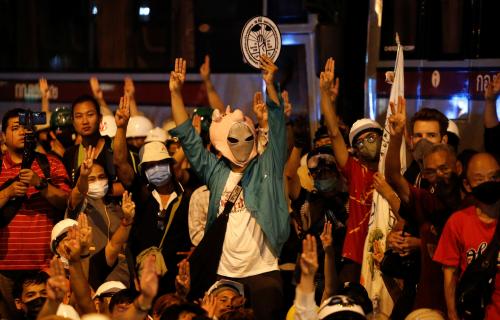
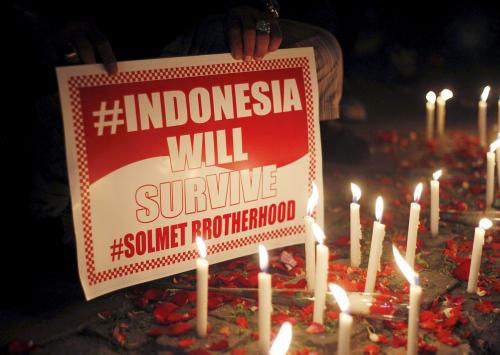
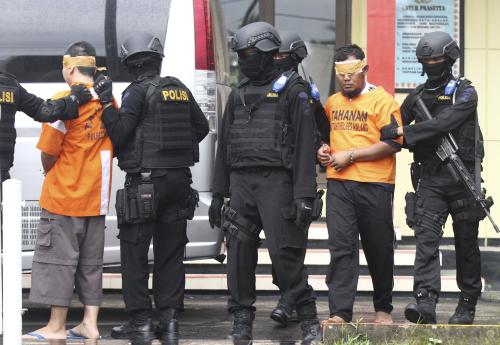
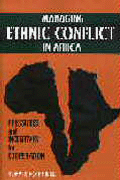
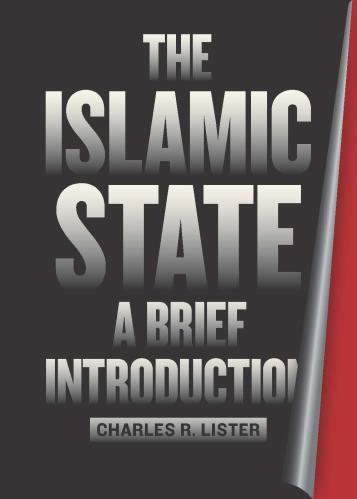




Commentary
A preliminary analysis of the Bangkok bombing
August 19, 2015